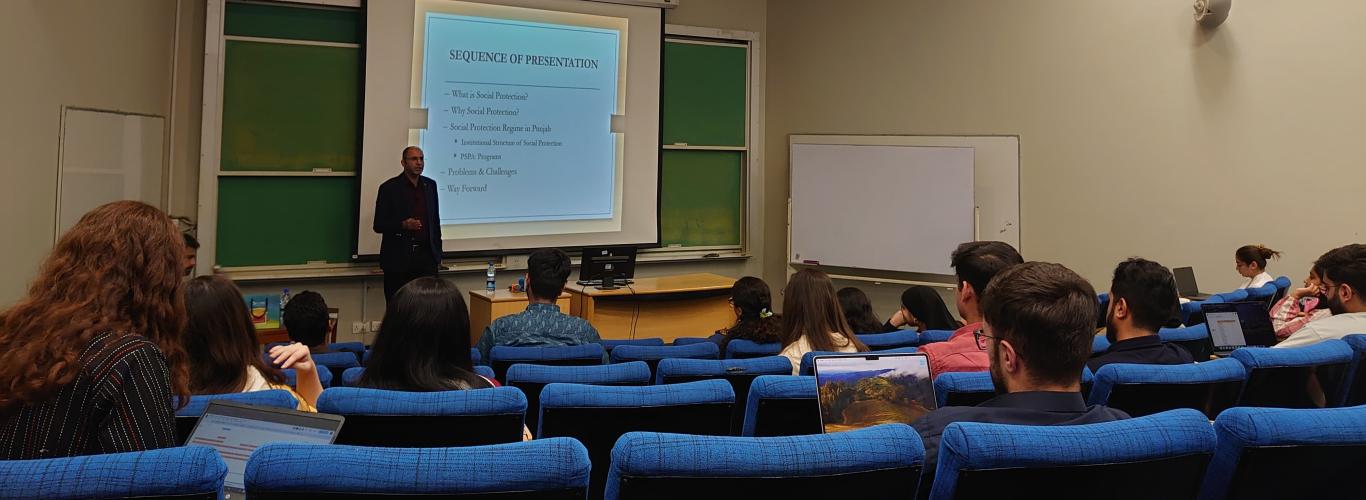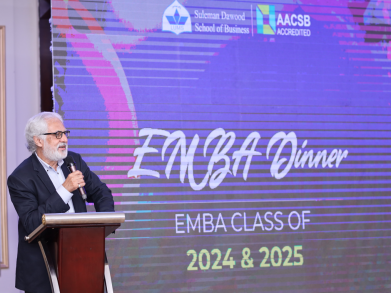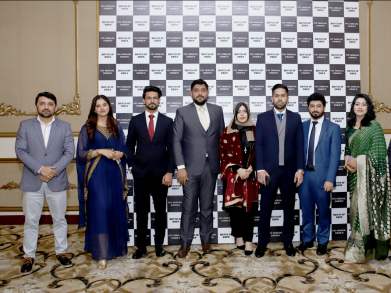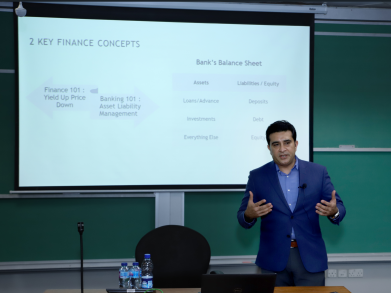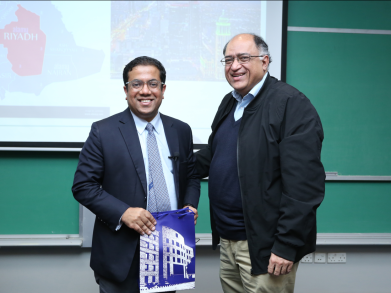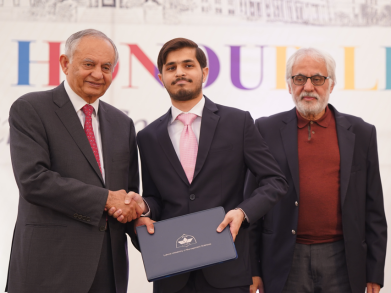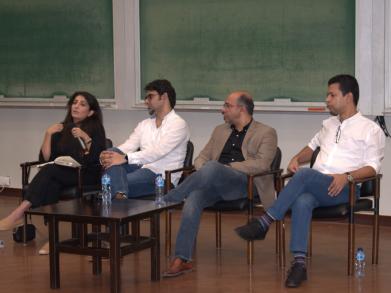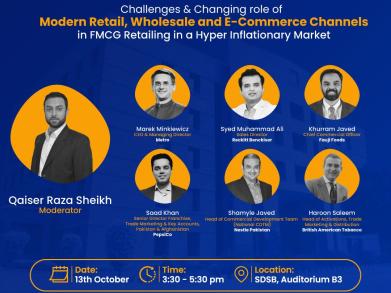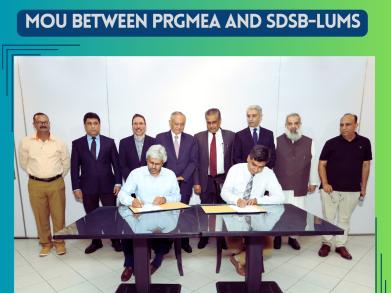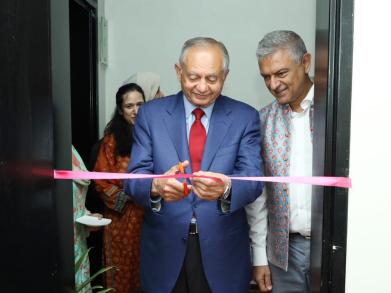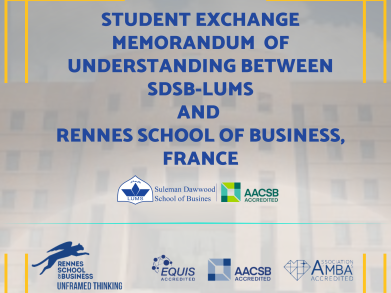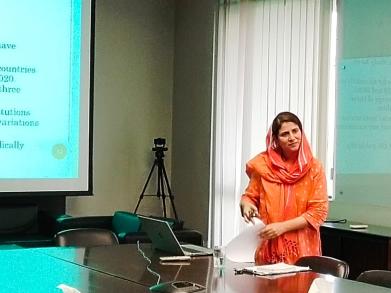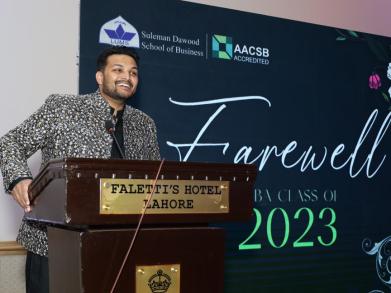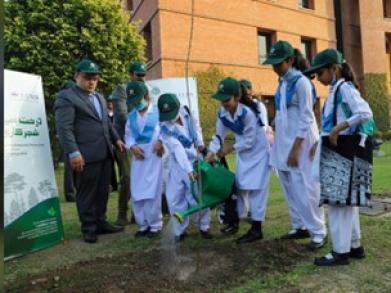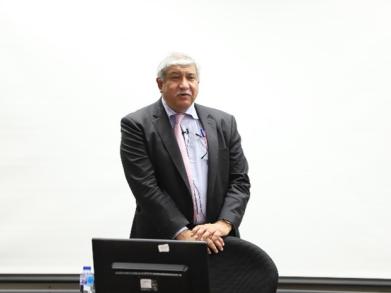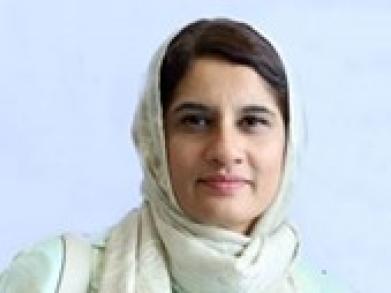A Guest Speaker Session with Mr. Ali Shehzad for Policy Analysis (MGMT 261)
On Thursday, April 18, 2025, students of the Policy Analysis (MGMT 261) course at SDSB-LUMS had the opportunity to engage with Mr Ali Shehzad, CEO of the Punjab Social Protection Authority (PSPA) and Project Director of the Punjab Human Capital Investment Project, in an insightful guest speaker session. The event aimed to connect classroom learning with the practical dimensions of social policy design and implementation.
Mr. Shehzad opened the session by introducing the conceptual framework underpinning social protection policies. He shared a comprehensive overview of several key initiatives led by the PSPA, including the Ehsaas Ration Programme, Zevar-e-Taleem, Aghoosh, Bahimmat Buzurg, and Bunyaad. Each programme targets distinct socio-economic challenges, collectively contributing to the well-being of vulnerable populations across Punjab.
A focal point of the discussion was the Punjab Socio-Economic Registry (PSER)—a pioneering initiative designed to create a dynamic socio-economic database of Punjab’s citizens. Mr Shehzad explained how the PSER will play a pivotal role in enhancing the efficiency and transparency of future welfare programmes by enabling data-driven decision-making and more targeted interventions.
Throughout the session, Mr Shehzad emphasised the importance of inclusive development, community engagement, and evidence-based policymaking. His reflections offered students a grounded understanding of how abstract policy theories evolve into actionable strategies that aim to improve lives through education, poverty alleviation, and social inclusion.
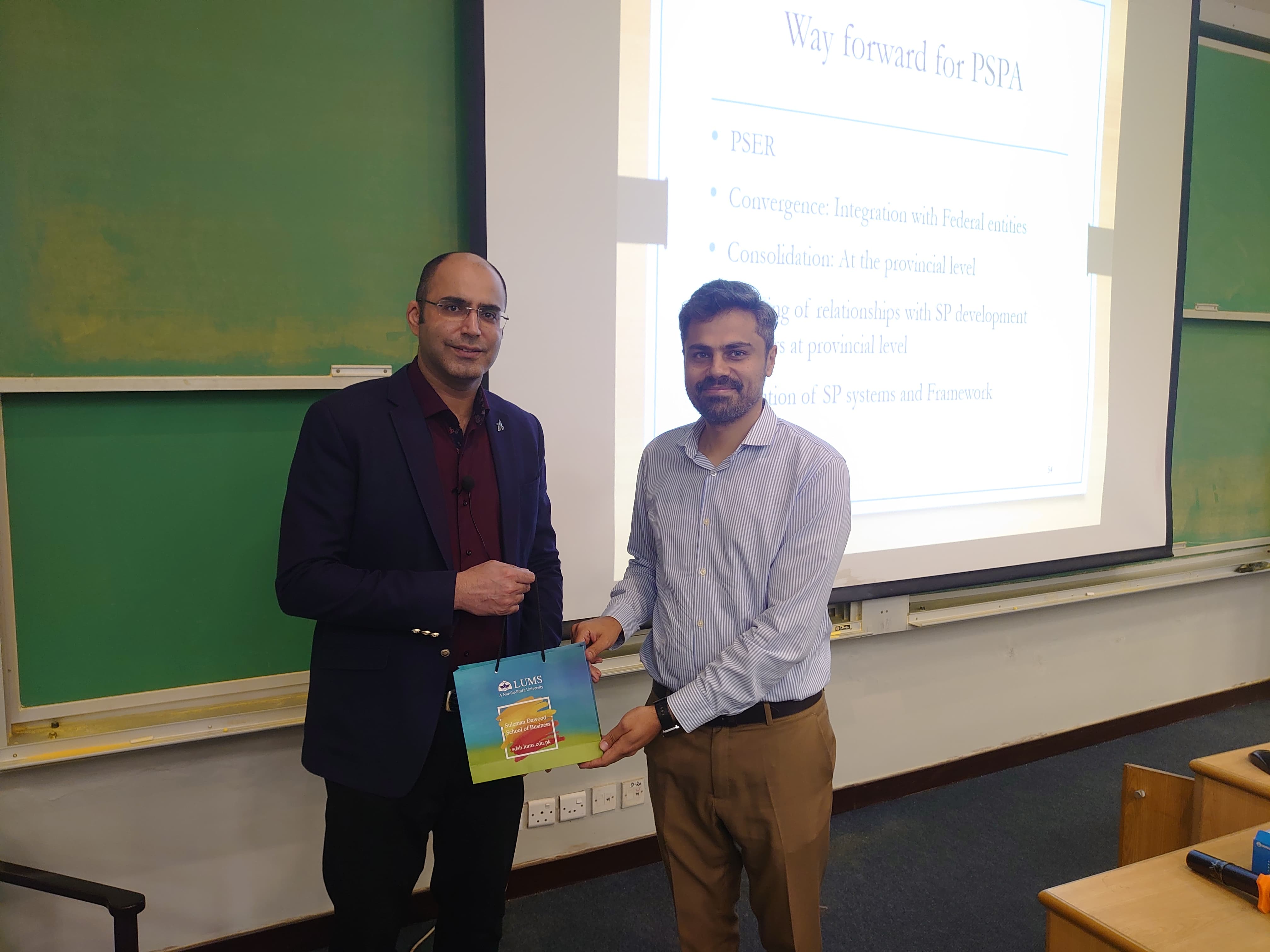
The interactive Q&A session encouraged students to critically reflect on the practical challenges of policymaking, including stakeholder coordination, implementation bottlenecks, and measuring social impact. The lively and thought-provoking exchange fostered a richer comprehension of public sector decision-making.
SDSB-LUMS continues to foster meaningful academic-industry interactions that supplement classroom learning and prepare students to engage with the real-world intricacies of policy and governance.

